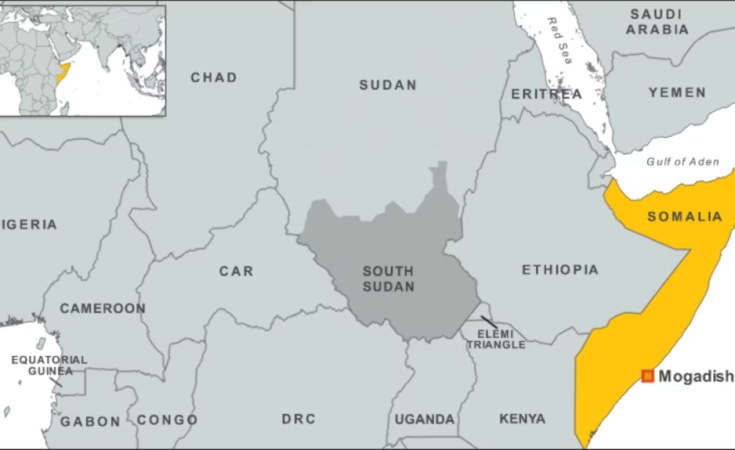Mogadishu, Somalia — Somalia's cabinet has endorsed a comprehensive national security threat assessment document identifying terrorism, separatism, state fragility, open borders, foreign interference, climate change, cybersecurity risks, and social crises as key threats to the country's security and stability.
The document emphasizes the need for a coordinated effort to address these challenges, including enhancing border security and strengthening governance structures. The endorsement marks a significant step towards a more secure and stable Somalia, as the government prioritizes addressing pressing security threats amid ongoing state-building and development efforts.
The assessment categorizes the following issues as national security threats:
1. Terrorism: The document highlights the ongoing threat posed by various terrorist groups operating within the country, particularly Al-Shabaab. It emphasizes the need for a coordinated and sustained effort to counter this threat.
2. Separatism: The cabinet has recognized the potential dangers posed by separatist movements within the country, which could lead to further destabilization and conflict.
3. State Fragility: The document acknowledges the fragility of the Somali state, which is still recovering from years of conflict and instability. It emphasizes the need for a robust and effective governance structure to address this issue.
4. Open Borders: Somalia's porous borders are seen as a significant security concern, as they allow for the movement of weapons, contraband, and potentially dangerous individuals. The assessment calls for enhanced border security measures to address this issue.
5. Foreign Interference: The cabinet has recognized the risks associated with foreign interference in Somalia's internal affairs, which could undermine the country's sovereignty and stability.
6. Climate Change: The document highlights the potential security implications of climate change, including the increased risk of droughts, floods, and other natural disasters, which could exacerbate existing vulnerabilities and lead to social unrest.
7. Risks from Cybersecurity: As the world becomes increasingly digital, the assessment recognizes the growing threat posed by cyberattacks, which could compromise critical infrastructure and sensitive information.
8. Risks from Social Crisis: The cabinet has identified the potential for social crises, such as widespread poverty, unemployment, and inequality, to contribute to instability and insecurity within the country.
The endorsement of this comprehensive threat assessment document marks a significant step towards a more secure and stable Somalia. It provides a clear framework for the government to prioritize and address the most pressing security challenges facing the nation.
As Somalia continues to navigate the complex challenges of state-building and development, the government's commitment to addressing these security threats is a promising sign for the future of the country. The cabinet's endorsement of the document demonstrates a proactive approach to tackling the wide array of threats facing the nation, and signals a renewed focus on strengthening national security and stability.
The comprehensive nature of the assessment also underscores the interconnectedness of the various security threats facing Somalia. From terrorism and separatism to climate change and cybersecurity, the document recognizes that addressing one issue in isolation is not enough. Instead, a holistic and coordinated approach is needed to effectively tackle these complex challenges.
Furthermore, the document's emphasis on enhancing governance structures and addressing social crises highlights the government's recognition of the need for a comprehensive approach to national security. By addressing issues such as poverty, unemployment, and inequality, the government aims to tackle the root causes of instability and insecurity, rather than merely reacting to the symptoms.
The endorsement of the national security threat assessment document by Somalia's cabinet represents a significant step towards a more secure and stable future for the country. By identifying and prioritizing the key threats facing the nation, the government is taking a proactive approach to tackling these challenges.
As Somalia continues to navigate the complex challenges of state-building and development, the commitment to addressing these security threats is a promising sign for the future of the country.


